Indigenous Governance Database
membership
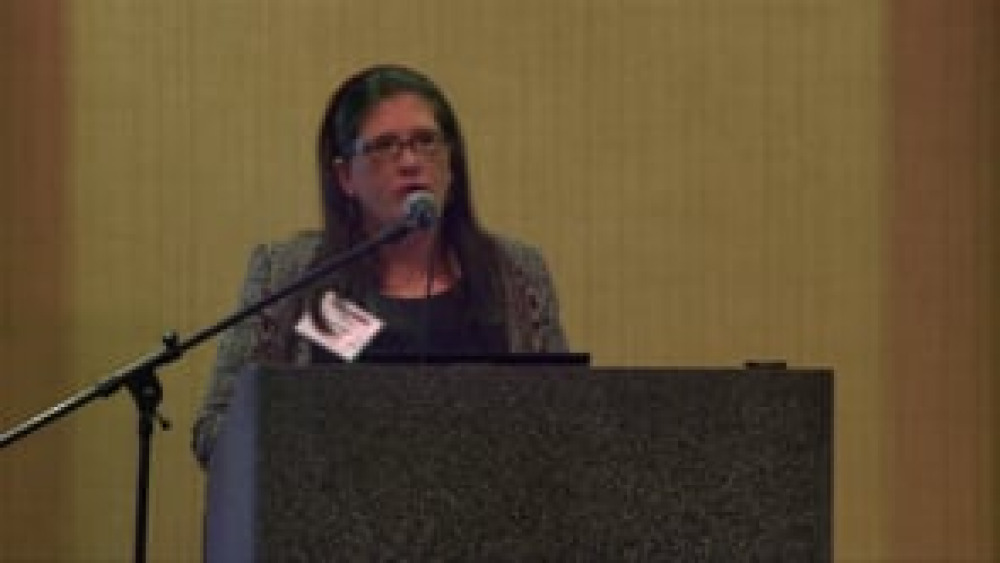
Sarah Deer: The Muscogee (Creek) Nation's Approach to Citizenship
Sarah Deer (Muscogee), Co-Director of the Indian Law Program at the William Mitchell College of Law, provides a brief overview of the Muscogee (Creek) Nation's unique approach to defining its citizenship criteria, which essentially creates two classes of citizens: those who run for elected office,…
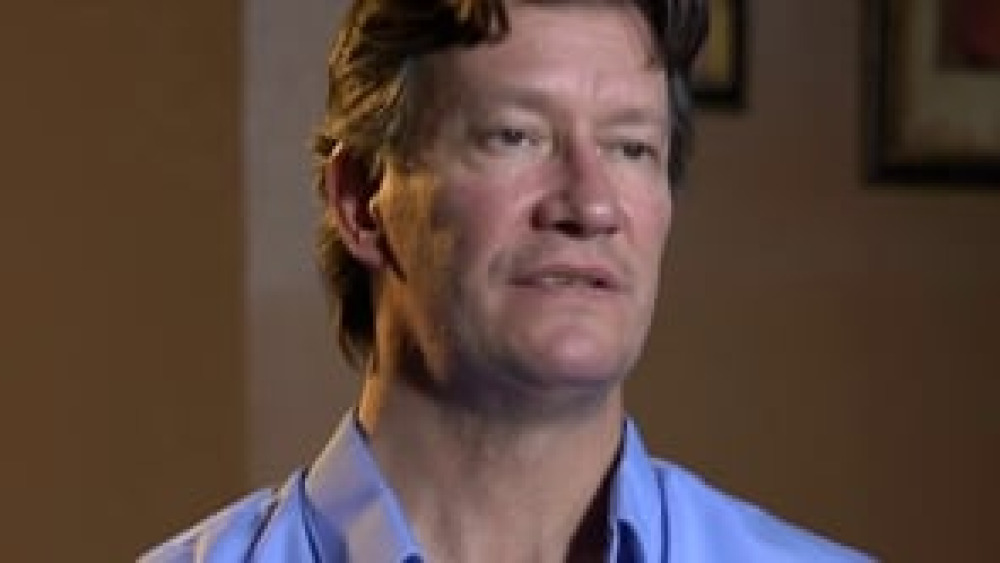
Native Leaders: The Purpose and Challenge of Redefining Citizenship
Several Native leaders share their thoughts on why their nations are deliberating potential changes to their citizenship criteria, and they discuss some of the many challenges that Native nations face in this complex area of governance.
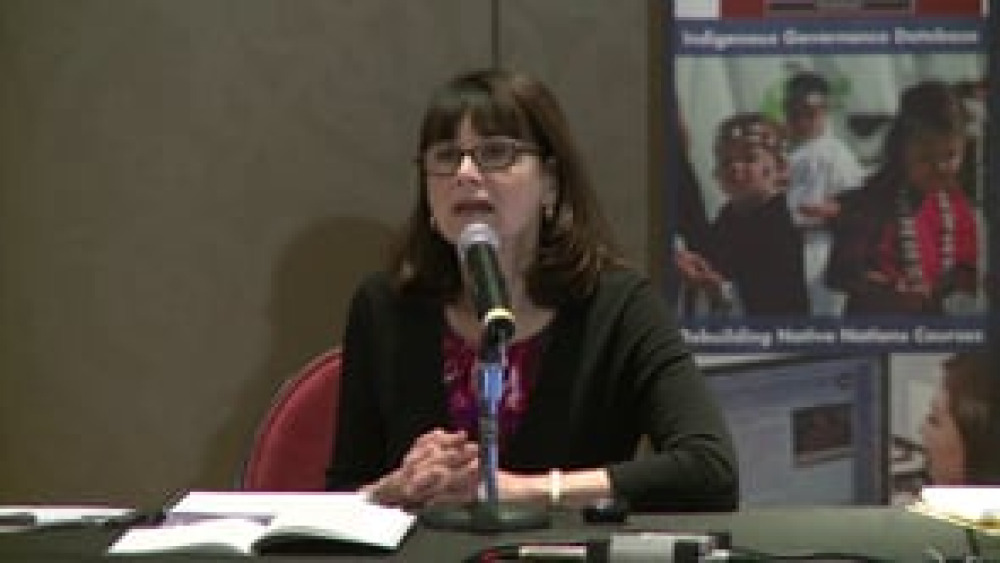
Carole Goldberg: Designing Tribal Citizenship
Scholar Carole Goldberg shares what she's learned about citizenship criteria from her extensive work with Native nations across the country, and sets forth the internal and external considerations that Native nations need to wrestle with in determining what their citizenship criteria should be.
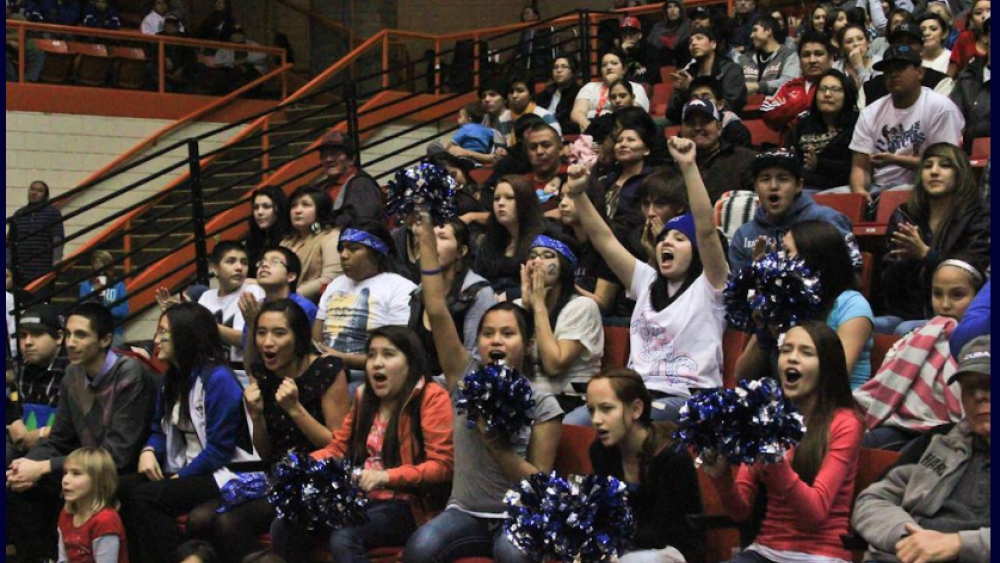
Oglala Sioux Tribe to issue IDs at tournament
For the first time in its history the Oglala Sioux Tribe will bring its enrollment office to the public. During this year’s Lakota Nation Invitational in Rapid City the tribe will have a booth set up to issue tribal IDs to enrolled members who may not have the opportunity to travel to Pine Ridge to…
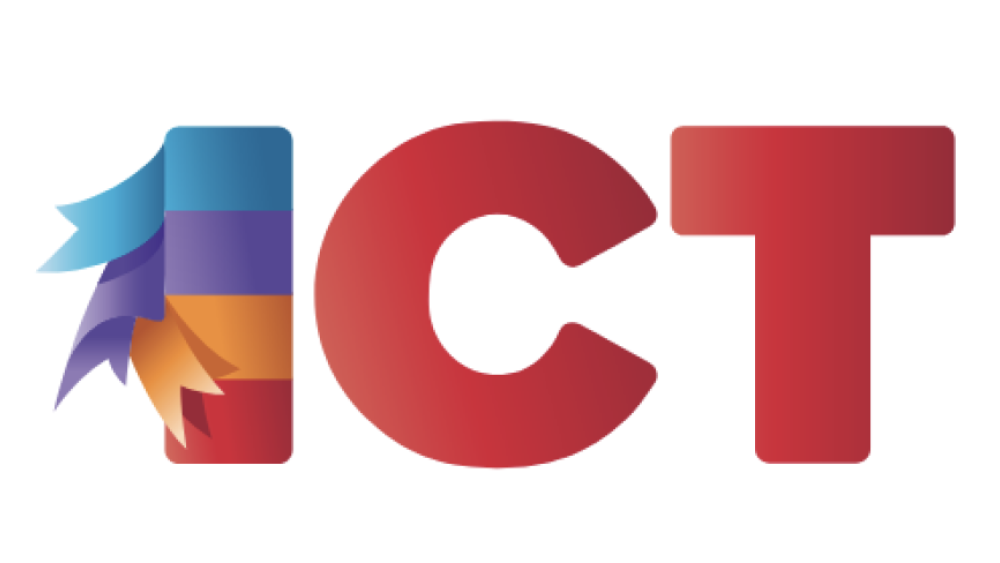
Disenrollment Is a Tool of the Colonizers
Our elders and spiritual leaders do not teach the practice of disenrollment. In fact, disenrollment is a wholly non-Indian construct. Indeed, when I recently asked Eric Bernando, a Grand Ronde descendant of his tribe’s Treaty Chief and fluent Chinook Wawa speaker, if there was a Chinook Wawa word…

The Unintended Consequences of Disenrollment
For most of the modern tribal self-determination era, American Indian nations have emphasized inclusion. Starting in the early 1970s, higher tribal membership numbers equated to higher federal self-determination dollars. As tribes otherwise redoubled their efforts to reverse the destruction caused…

Two Possible Paths Forward for Native Disenrollees and the Federal Government?
Disenrollment, a seemingly innocuous term when used outside Indian country, has become a loaded word that rivals, if it does not surpass, “termination” as a concept that invokes fear and trembling in those natives who suffer its consequences. While the federal policy of termination in the 1950s was…
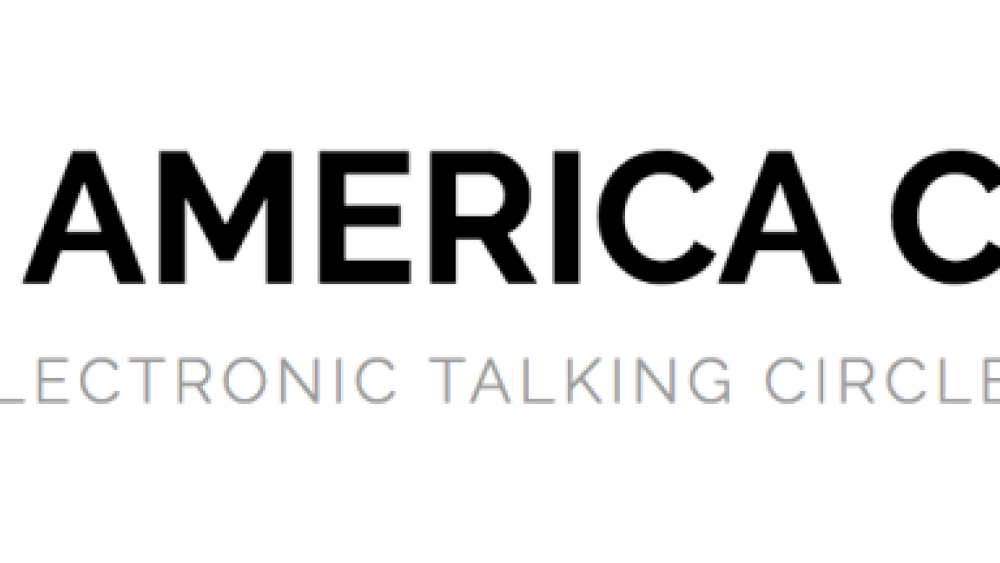
Tribal Enrollment And Blood Quantum
Every tribe has its own rules for membership. Some tribes include lineal descent — proof that you descend from a recognized tribal member — while others have a blood quantum requirement that requires members possess a certain percentage of tribal blood. On White Earth, researchers found that the…
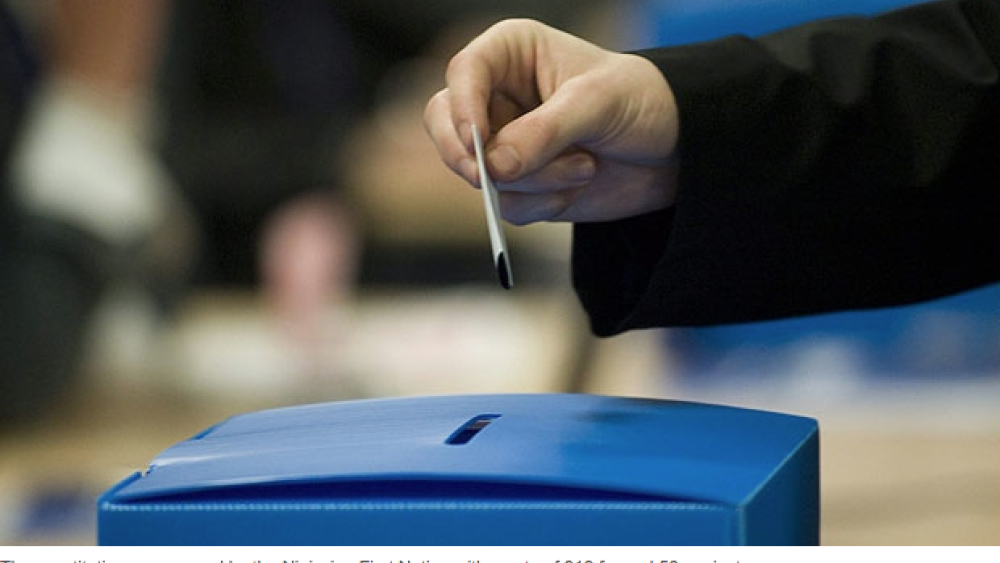
Nipissing First Nation passes first Ontario Aboriginal constitution
The Nipissing First Nation has passed a constitution that's believed to be the only First Nations constitution in Ontario. But there are questions about what this document actually does for the community. The constitution was passed by the Nipissing First Nation with a vote of 319 to 56. …
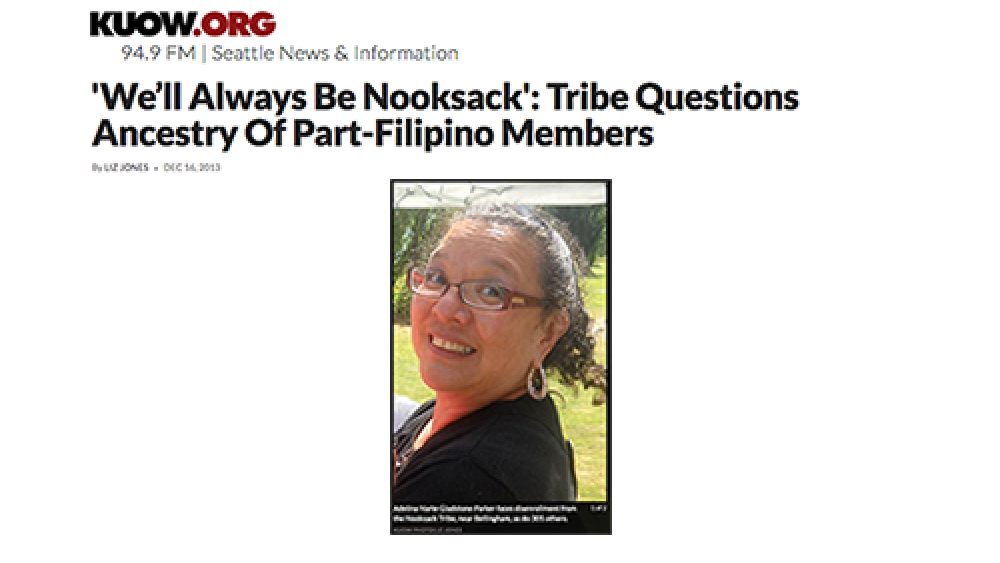
'We'll Always Be Nooksack': Tribe Questions Ancestry Of Part-Filipino Members
About 300 members from the Nooksack Tribe, near Bellingham, provide their perspective of being disenrolled by Nooksack Tribal Council because of their Nooksack and Filipino ancestry.
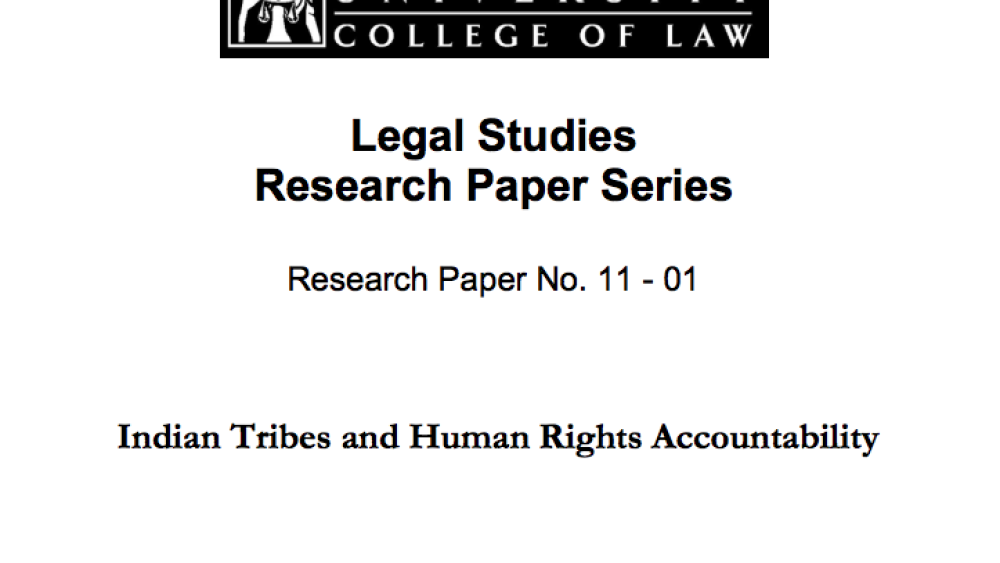
Indian Tribes and Human Rights Accountability
In Indian country, the expansion of self-governance, the growth of the gaming industry, and the increasing interdependence of Indian and non-Indian communities have intensified concern about the possible abuse of power by tribal governments. As tribes gain greater political and economic clout on…
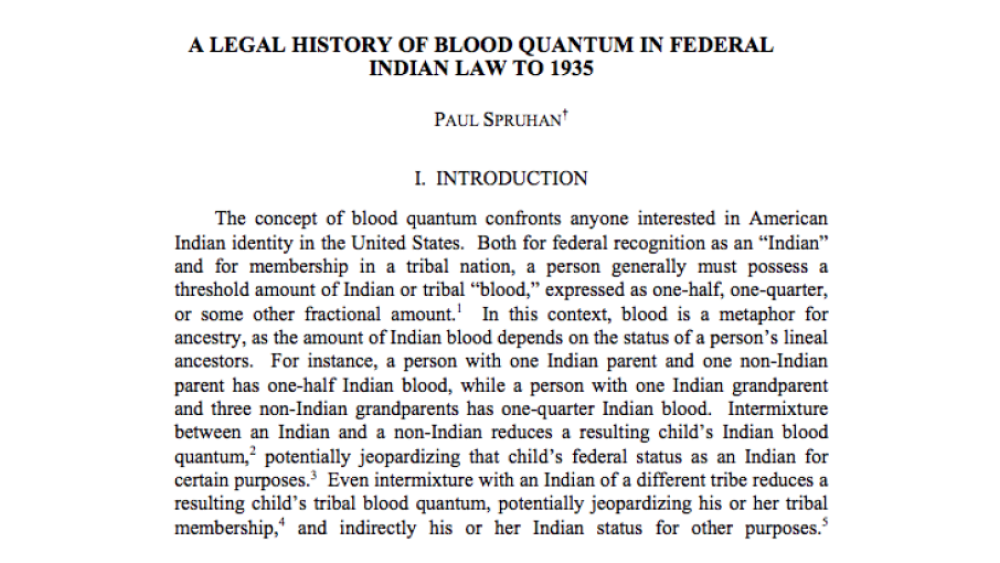
A Legal History of Blood Quantum in Federal Indian Law to 1935
The paper traces the development of the use of blood quantum, or fractional amounts of Indian blood to define Indian in federal law up to the Indian Reorganization Act of 1934. The paper shows that blood quantum was not widely used in federal law until the twentieth century, as the branches of the…
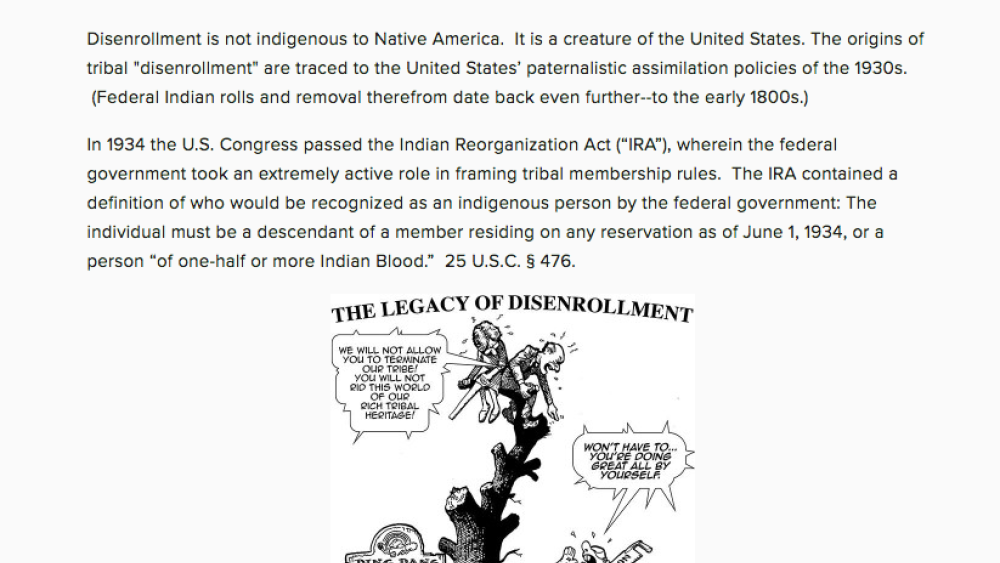
An Essay on the Federal Origins of Disenrollment
Disenrollment is not indigenous to Native America. It is a creature of the United States. The origins of disenrollment are traced to the United States’ paternalistic assimilation policies of the 1930s. In 1934 the U.S. Congress passed the Indian Reorganization Act (“IRA”), wherein the federal…
